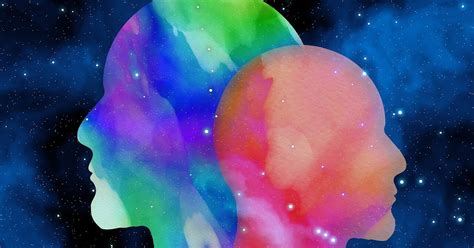Daniel Dennett’s thought experiment ‘Where Am I?’ sparks a wide array of engaging discussions and reflections on the complex concepts surrounding our sense of self. Users explore the intricacies of consciousness, self-perception, and the mind-body relationship through the lens of this captivating narrative. The narrative’s ability to prompt deep contemplation on the fundamental aspects of human existence is evident in the diverse range of perspectives shared by readers.
One user highlights the accessibility and instructional nature of presenting intricate philosophical concepts through the vehicle of fiction. The progression from guided analysis to open-ended exploration within the story captivates readers’ imaginations and encourages them to grapple with the profound implications of the hypothetical scenario. Through the evolution from didactic teaching to immersive storytelling, Dennett effectively stimulates readers’ intellectual curiosity and prompts them to critically examine their own beliefs.
The comments further elucidate the intersections between Dennett’s narrative and concepts from other philosophical works, such as Greg Egan’s ‘Learning To Be Me.’ By drawing parallels between different philosophical dilemmas and thought experiments, users deepen their understanding of the interconnected nature of philosophical inquiries. The ability to link various ideas across texts showcases the intellectual richness inspired by thought-provoking narratives.
In exploring the nature of consciousness and subjective experience, users engage in debates about the essence of self and the boundaries of identity. Discussions on dualism, eliminative materialism, and free will reveal the multifaceted nature of philosophical inquiry and the diverse perspectives that shape individuals’ worldviews. Through these dialogues, readers are encouraged to challenge conventional beliefs and probe the underlying assumptions that inform their understanding of reality.
The insightful comments also delve into the implications of mechanistic explanations for consciousness and the potential conflicts between physical determinism and subjective experiences. Users grapple with the dichotomy of perceiving the mind as a product of neural processes while acknowledging the enigmatic nature of qualia and the subjective aspects of human consciousness. These discussions highlight the complexities inherent in reconciling scientific explanations with lived experiences.
Moreover, the narrative prompts users to reflect on the ethical dimensions of consciousness, choice, and identity. Conversations on morality, pain perception, and empathy shed light on the intricate relationship between biological processes and moral decision-making. By contemplating scenarios that blur the lines between personal agency and deterministic frameworks, readers confront fundamental questions about the nature of responsibility and autonomy.
The narrative’s ability to elicit diverse and thought-provoking responses underscores the enduring appeal of philosophical inquiry and the perennial quest to unravel the mysteries of human existence. Through engaging with Dennett’s narrative and the subsequent user comments, individuals are invited to embark on a philosophical journey that challenges preconceived notions and stimulates intellectual growth. By fostering discussions on the nature of self, consciousness, and identity, this thought experiment serves as a catalyst for deeper introspection and exploration of the fundamental aspects of the human experience.
As users continue to grapple with the intricate themes presented in ‘Where Am I?,’ they contribute to a rich tapestry of insights and interpretations that illuminate the complex landscape of philosophical thought. By engaging with the narrative’s existential queries and profound reflections on the nature of selfhood, readers embark on a transformative intellectual odyssey that encourages them to critically analyze their beliefs, confront philosophical paradoxes, and embrace the enduring quest for self-understanding.


Leave a Reply